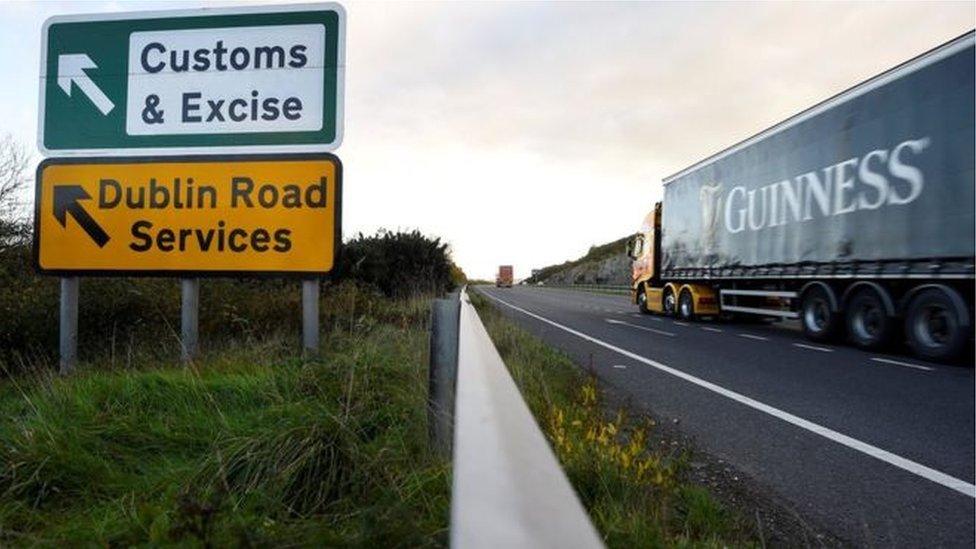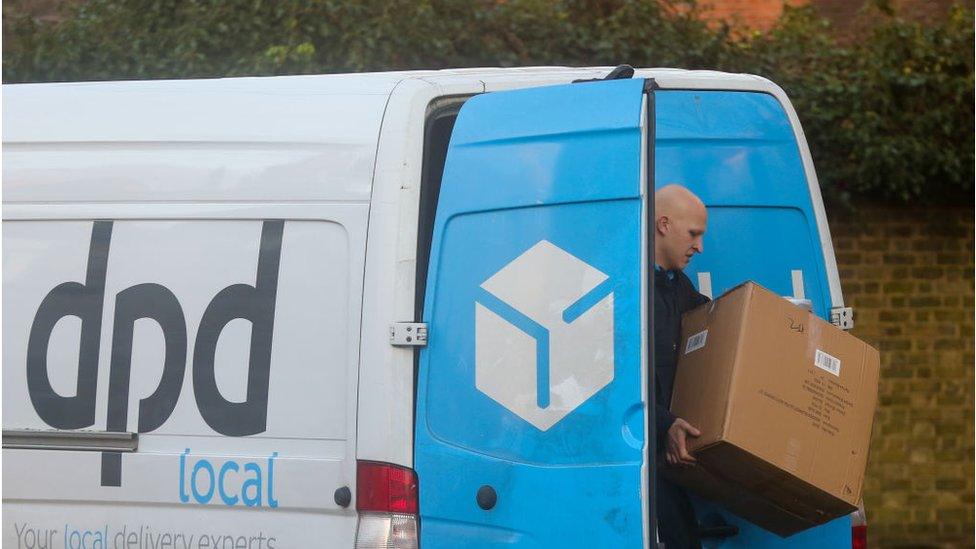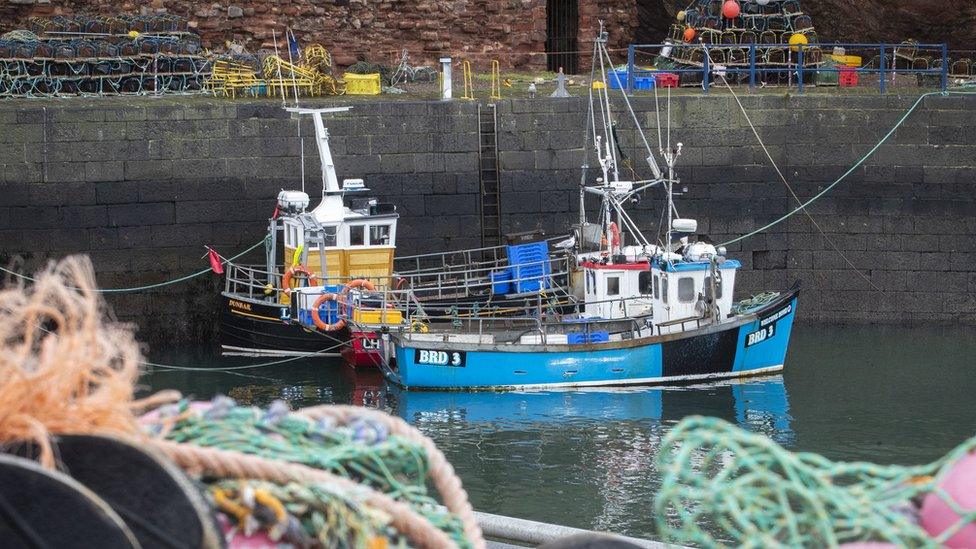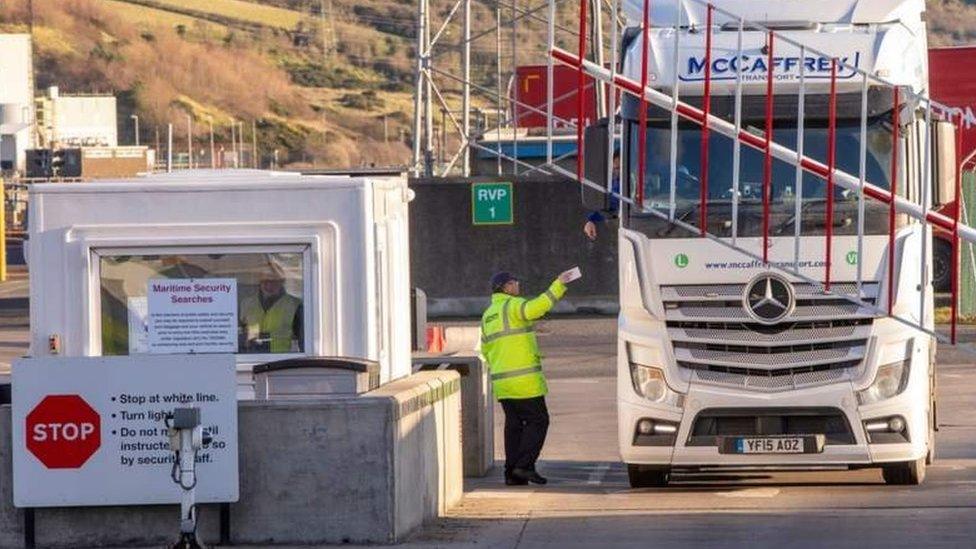British exports to Ireland fall by almost €1bn
- Published

The Republic of Ireland imported almost €1bn (£856m) less of British goods in January compared with the same month in 2020.
That represents a fall of 65%, with the decline of Great Britain food imports even steeper, down by 75%, according to Ireland's Central Statistics Office.
January was the first month of post-Brexit trading arrangements.
This meant Great Britain goods faced a range of new customs and regulatory controls when entering Ireland.
Some of the decline may have been influenced by stockpiling; imports of Great Britain chemical and pharma products were by down by 60% but that followed a spike in imports during December.
There may also have been some pandemic factors, for example the lockdown of hospitality may have had an effect on food imports.
Increase in NI-RoI trade
However, food imports from the wider EU were only down by 13%.
Irish goods exports to Great Britain also fell, though not so dramatically.
They were down by €149m (£127) or 14% with exports of food down by 33%.
However, trade between Ireland and Northern Ireland increased compared to last year.
Imports from Northern Ireland were up by 10% from €161m (£137m) euros to €177m (£151m) while exports to Northern Ireland were up 17% from €170m (£145) to €199m (£170m).
That may reflect the operation of the Northern Ireland Protocol which means continuing frictionless trade between the two parts of Ireland.
- Published4 March 2021

- Published2 March 2021

- Published10 March 2021
